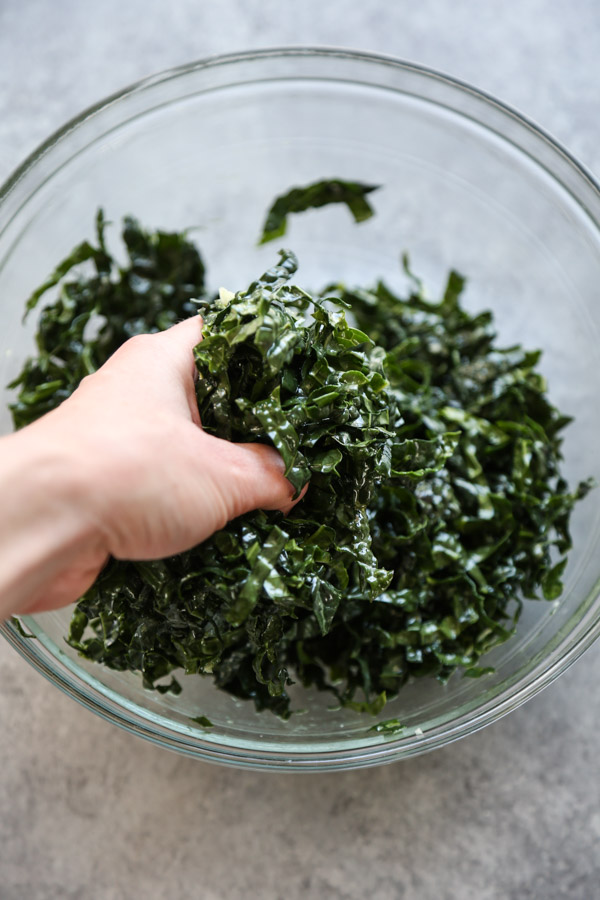Leaky gut (like adrenal fatigue) is a term that gets thrown around a lot in the holistic health space, despite its controversial place in mainstream medicine. It’s also one of those terms that might make you cringe a little, as no one wants to be told any organ or orifice is, er, leaking.
While intestinal permeability is a real thing (and for the sake of this post, I will use leaky gut interchangeably with this term), many practitioners argue that it is more important to look at other aspects of the digestive system to uncover why your gut might be damaged in the first place, rather than chalking up everything that ails you to this one syndrome.
I’ve had plenty of interviews on the podcast so far that cover various sides of the conversation. So in today’s post, I’m going to dive deeper into what impact leaky gut actually has on the body, the aspects of modern diet and pill popping that can contribute to increased intestinal permeability, and some easy changes that can reverse its course fairly quickly. I’ll also be covering some supplements you can add to your routine.
Read on for everything you need to know to heal leaky gut and tie it together with other pieces of your health puzzle.
WHAT IS LEAKY GUT SYNDROME?
When people talk about leaky gut, they are really referring to increased permeability in the small intestine.
For those of you who might have missed the basic anatomy lesson in my SIBO 101 series, the small intestine is where the majority of your nutrients are absorbed. It’s a more delicate section of the intestinal tract, responsible for allowing vital vitamins and minerals to pass into your bloodstream to keep your body fed, alive and well, while protecting you from some of the other junk that needs to be contained in the digestive system and eliminated via the colon.
The keepers of this barrier are called tight junction proteins, and they are responsible for making sure migrants have the right passport for entry. When the lining of the small intestine becomes damaged, either through degradation of the mucus that protects it or from local inflammation, the result is an increased permeability. Meaning, the fine mesh sieve formerly in place now allows through larger particles.
These foreign invaders, once in the bloodstream, can fire up the immune system, creating systemic inflammation via an unregulated, on-going immune response. The difference between local autoimmunity and system is something that’s explained really well by Dr. Susan Blum in this episode.
WHAT CAUSES LEAKY GUT?
Like many complicated gut-related conditions, leaky gut suffers from a lot of “chicken or the egg” ambiguity.
It’s thought that food sensitivities that trigger local autoimmune responses can cause damage to the intestinal wall. When our body is attacking something it doesn’t want around, it’s not uncommon for our own tissue to get caught in the cross-fires. (If you’ve read up on the connection between Hashimoto’s and gluten, then you know what I’m talking about.)
Since those tight junctions are proteins that might look similar to certain foods (the same way our body can’t tell the difference between a gluten protein and a thyroid protein), they become damaged during an attack.
Of course, once the barrier is damaged and members of that unwanted food group (let’s say soy) migrate from the small intestines into your bloodstream, it will cause an even more pervasive immune response. And that response will only further the feedback loop: now every time you eat soy, an even bigger army is sent to greet it in your small intestines, which only further damages your gut.
Food sensitivities create a vicious cycle, as do other causes like Small Intestine Bacterial Overgrowth.
Since your small intestine isn’t meant to house very much bacteria, their presence means competition for your food sources. When they aren’t getting enough carbs, they turn to the next best thing: you.
Unwanted bacteria can also feast on the mucus that protects your tight junctions, which is why increased intestinal permeability is one of the big downwind consequences of SIBO.
There is also a wide array of medications that can cause damage to the protective mucus layers: NSAID’s like aspirin and acetaminophen, antibiotics, steroids, chemotherapy and birth control pills.
For more information on why the pill creates another feedback loop of gut damage, listen to this episode of the podcast with Dr. Jolene Brighten.
Other causes of leaky gut include toxin overloads like mercury and other heavy metals, chronic stress, and gut-related autoimmune diseases.
Those with Crohn’s, colitis, and celiac disease have a higher risk of permeability since the gut is constantly under attack.
WHAT ARE LEAKY GUT SYMPTOMS?
Signs of leaky gut can include any number of inflammatory symptoms.
Something we’ve discussed regularly on the podcast is that every individual has genetic shortcomings. Those with neurological weaknesses may experience the fog of inflammation as migraines, moodiness, or irritability. It might manifest as depression, anxiety, ADD, or ADHD.
Those who are already “gut people” may notice an increase in food allergies or IBS symptoms like bloating, constipation or diarrhea, since with leaky gut, damaged cells mean less enzymes for proper digestion. Another downwind symptom is nutrient deficiencies, which can then lead to hormone imbalances and thyroid issues.
Some may experience those imbalances through rashes and skin ails, sleep issues, brain fog, and memory loss.
Others who are predestined to joint issues might feel the inflammation as arthritis.
The list goes on!
HOW TO DO A LEAKY GUT TEST
The leading test for leaky gut measures levels of two indigestible sugars, mannitol and lactulose, in your urine. The idea is that you drink a premeasured amount of those sugars and the permeability or malabsorption is reflected in the levels recovered in a urine sample collected over the next 6 hours.
Some practitioners think this test is bogus and it’s better to rule out other things first. I had an interesting conversation with Dr. Patrick Fratellone on the podcast about this. His argument is that you need to test for intestinal permeability—even if you know the root cause of it—so you know how to treat the patient properly.
If you have severe intestinal permeability, it’s going to be much harder for you to digest capsule pills and you might be better off using powders, tinctures or teas to begin healing your leaky gut or treating your SIBO (which might be a big root cause).
WHAT IS THE BEST LEAKY GUT DIET?
Discovering your root cause of leaky gut is going to be the best method of healing it, and often that trigger is a hidden food sensitivity.
The best way to uncover the culprit is through an elimination diet. This post will give you an overview of which food groups are most common to remove and for how long. I also have a 4-week Elimination Diet meal plan with recipes that will walk you through it.
Many people talk about removing lectins for leaky gut. This is a more extreme therapeutic diet approach. Personally, I would first try the bigger culprits. Next, focus on removing grains and legumes to give your gut further time to rest.
If you think SIBO is one of your root causes, it might be worth exploring a low FODMAP diet. If you find that these fermentable carbs are irritants, it could be a sign that there’s an overgrowth of bacteria in your small intestine that’s contributing to the leaky gut.
For more guidance on an elimination diet or a low FODMAP version that reduces legumes and easily fermentable carbs, check out my meal plans here.
As for what else to remove, it can’t hurt to take away additional irritants like alcohol, caffeine and sugar. This is something I do whenever my gut is feeling off for any reason.
Finally, focus on eating plenty of leafy greens, healthy fats such as fish, olives, avocados and coconut oil, and rich stocks and broths made from responsibly-raised animal bones.
WHAT ARE THE BEST LEAKY GUT SUPPLEMENTS?
Collagen: The reason why bone broth is such a salve to the intestinal wall is due in part to their wealth of amino acids. These are the big workhorses for rebuilding tissue, fortifying your hair, nails and teeth. When my gut was still recovering from SIBO treatment, I used powdered collagen and added it to my morning tea, soups, smoothies and baked goods. Now that my gut is in better shape, I often take it in pill form for maintenance.
Probiotics: If you’ve read this post or listened to this podcast episode, then you know there’s more and more fascinating research on the roles of specific probiotic strains. For leaky gut, improving motility is going to be a key component. Click here for my favorites.
Digestive enzymes: When your gut is damaged, you want to make sure that you’re helping break down your food as much as possible before it enters the intestinal tract. That means first and foremost CHEWING. Like, really well. Second, you can take digestive enzymes to aid in the process and make up for the ones your body is too inflamed to make.
L-glutamine: This is another specific amino acid that rejuvenates the lining of the intestinal wall. You can buy it in pill or powder form, but as I mentioned earlier, if you’re in bad shape, start with the latter.
For more information on healing leaky gut after SIBO and what to put in your medicine cabinet to manage symptoms, I also have a full guide to SIBO supplements here.




I don’t know if I have this but I don’t think it would be a bad idea to get tested for it. I do like how you described how it happens since the intestine lining becomes thinner, thus allowing larger particles to get through. If anything, it would probably be best to go to a doctor and have them do the testing for me.